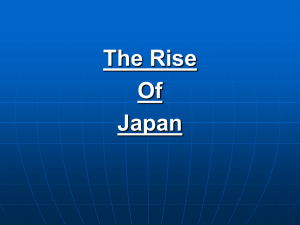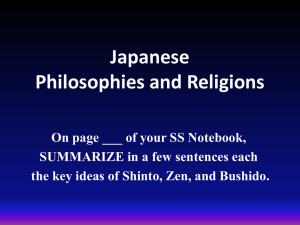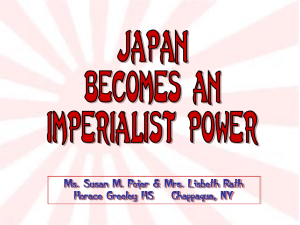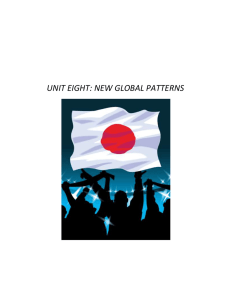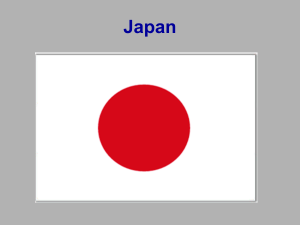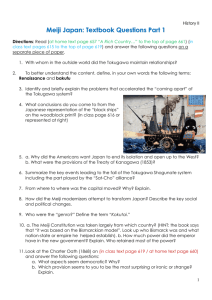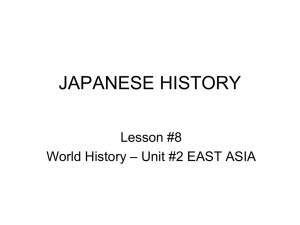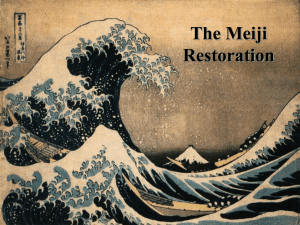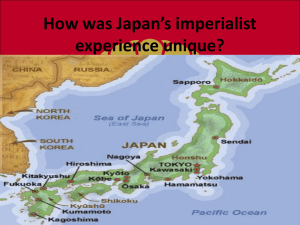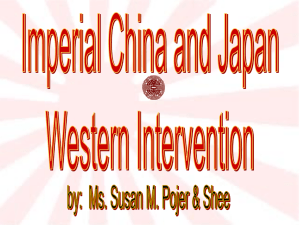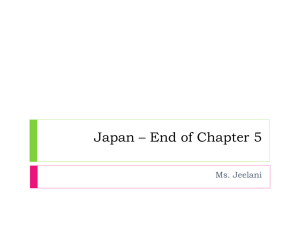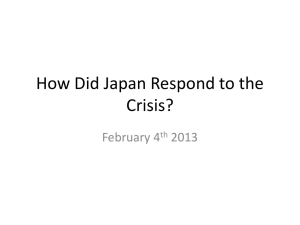Intro to Japan
advertisement
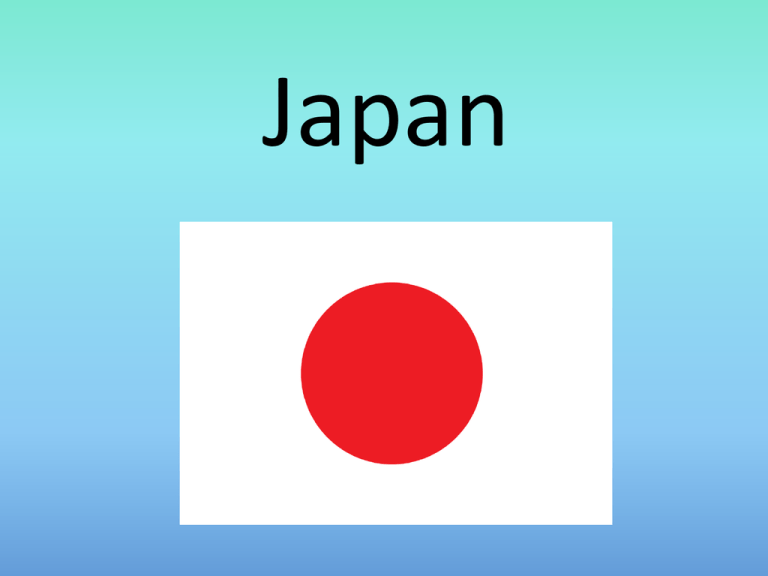
Japan Fast Facts • • • • 70% of country is mountainous. 16% is agricultural. 2/3 of population lives in 3% of the land area. Japan as a group of islands means its people are great fishers, seafarers and traders. Fast Facts • Being small, crowded and lacking in raw materials, it has always looked to other countries, especially China & Korea for surplus population, source of materials like oil and iron ore, and a market for Japanese manufactured goods. • In a perfect position to control shipping & maritime access to the Asian mainland. Fast Facts * Japan was pretty much the first Asian nation to take up the ways of the West. * They revere nature and the natural environment. History • 1603-1867 – country ruled by the leader of the Tokugawa clan; a powerful family of generals, warriors & soldiers. • The Tokugawas closed off Japan from the rest of the world. • They were concerned with foreign ideas influencing the Japanese people into making demanding changes. History • In 1639 – the Tokuwagas implemented a policy called sakoku (closed door), banning all foreigners from entering Japan & banning all citizens from going overseas. • Japan was sealed off from the rest of the world for 200 years. History • By the middle of the 19th Century it was harder to maintain their isolation. British colonies in India, Malaya, Singapore, Burma & Hong Kong; Dutch in Eats Indies; Spain in Philippines; France in Laos, Cambodia & Vietnam. • They were concerned about European power after seeing them control and humiliate China. • The Russians were also a threatening presence History • The US began to look to Asia to trade and expand their power & wealth. • 8th July, 1853 – American Commodore Perry sailed into Tokyo Harbour. • The US wanted to open more ports for trading and provision of food and coal. The shogunate was in a panic. History • The Treaty of Kanagawa – first treaty between Japan and a Western power. • Within 2 years, treaties signed with Great Britain, Russia & the Netherlands. • Some rebelled. A movement to expel the foreigners & restore the power of the Emperor developed rapidly. Powerful clans, beaten by the Tokugawa clan, led the way. British warships destroyed theirs after the Legation was burnt. History • January 1867 – new Emperor. 13 November 1867 – the last shogun was forced to resign. Emperor’s power was restored 3rd Jan, 1868. The Meiji Restoration • New Emperor – Meiji – changed Japan beyond recognition into a modern, industrialised nation. His rule finished in 1912. • In 1868 he issued the Charter Oath – a commitment to change Japan. • The Feudal system was demolished. • New constitution became law in 1889. Monarch as the centre of all authority. • In 1872 – orders compulsory primary education for 6 years. Japan becomes the firs literate nation in Asia. The Meiji Restoration • Japanese leaders knew they had to learn the secrets of the West, but they didn’t want to lose their distinct identity, therefore precedence given to the Shinto religion, which placed the Emperor at the pinnacles of society.
